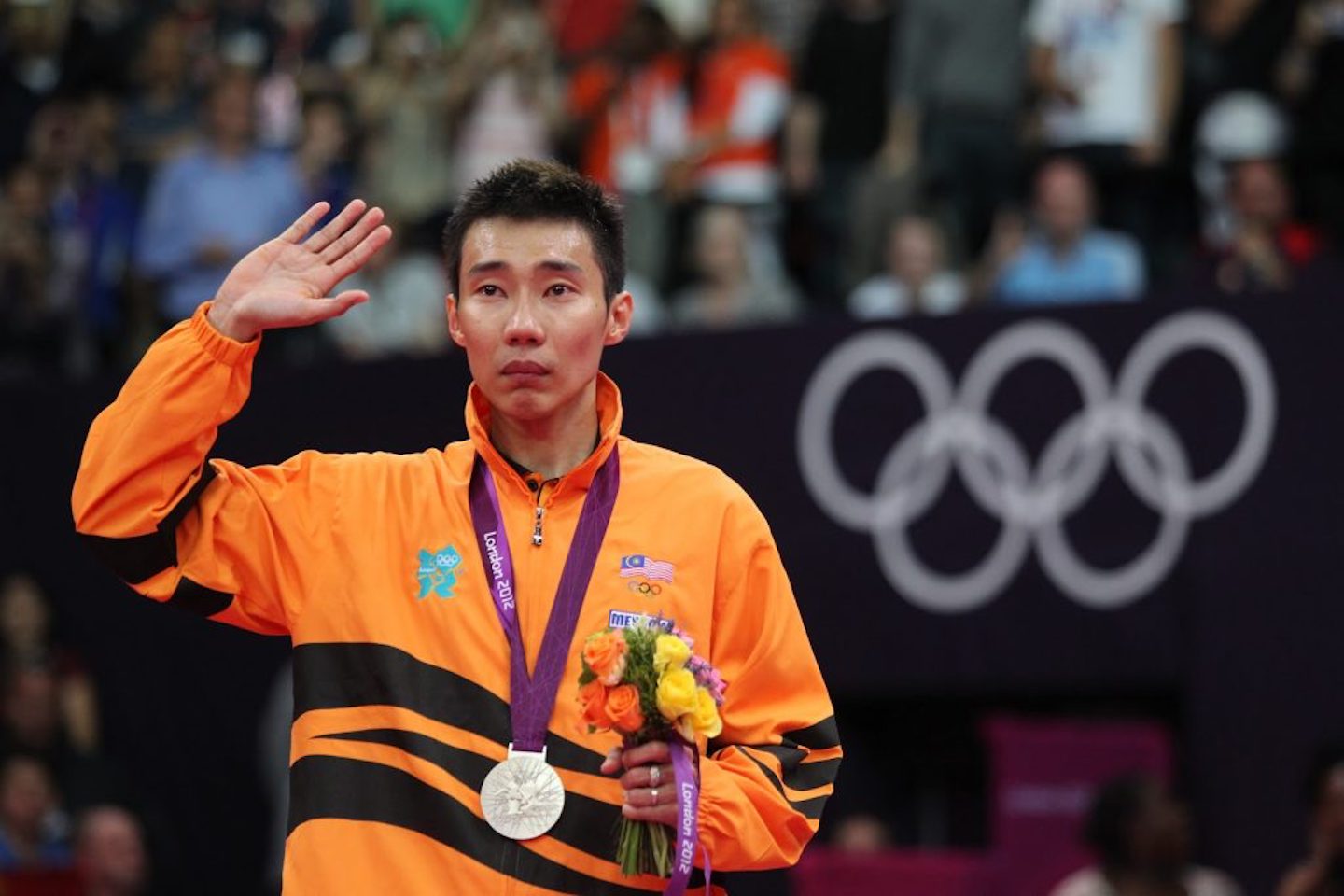
Lee Chong Wei began his silver trilogy in Beijing, added to it in London and completed the hat-trick in Rio (Photo: Bernama)
Gorgeous, glittering but elusive, gold has fascinated mankind for millennia. The pharaohs put it in their tombs, modern man puts it in his teeth, but all the gold ever mined would fit comfortably into just 3½ Olympic-sized swimming pools. And when it comes to claiming sport’s most precious metal, Malaysia has yet to dip its toe in the golden pond.
Eight silver and five bronze medals might seem a modest haul from 18 appearances since 1956. We missed the Moscow Games of 1980 because we joined the US-led boycott. But as our latest prospectors seek to break the gilded duck in Paris, they should not be dogged by a sense of futility.
The seams of glory have not been closed. We are getting closer and, for a little perspective on the overall performance, it is worth remembering the agonising close calls, bad luck and circumstances that were, in every sense, mitigating.
Not a sporting nation? Officially, we were not a nation at all but from 1949 to 1957, Malaya ruled the world in our “national” sport, badminton. Back then, the All-England Open was the de facto world championship and it was dominated by shuttlers from our shores.
When Ooi Teik Hock and Teoh Seng Khoon won the men’s doubles in 1949, it kick-started a sporting hegemony that even Real Madrid’s footballers couldn’t match. The European Cup didn’t get underway until 1955 and the Spanish kings won it the first five times. In contrast, Malaya won the All-England singles title eight times in a row — four apiece for Eddie Choong and Wong Peng Soon. As icing on the cake, the doubles crown was won five times during that period, inclusive of a hat-trick by Choong and his brother David. At this point, many in the sport were convinced badminton was a Malayan game.
For the record, it was the Federation of Malaya that competed in the 1956 Games, with North Borneo sending a separate team. But it was not the status of the country that was the problem; it was the status of the sport. Independence arrived 35 years before shuttlers got to grace the Olympic stage. It was in Barcelona in 1992 that brothers Razif and Jalani Sidek duly delivered a historic first — a bronze in the men’s doubles. But given their superiority in the 1950s, it’s hard not to think our shuttlers would have struck the mother lode at the 1952 and 1956 Games. A decent medal haul would not only have removed the psychological millstone, it may also have prolonged the country’s pre-eminence in the sport.
eblacq5uyae9hwk.jpg
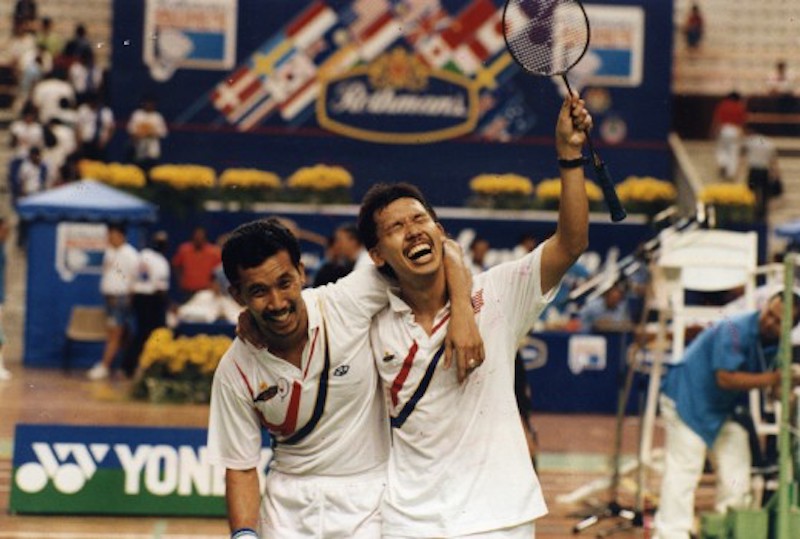
This is not to sound like someone who wishes they’d been born with a silver spoon, but some metal around the neck could have been a game changer. Not only could it have inspired future generations, the kudos gained from Olympic success would have ensured that things would not have been quite so “half-past six” when Malaysia did take part as a fully fledged nation.
Our finest ever athlete, Tan Sri Dr Mani Jegathesan, recalls having to sell flags and pins on the old Mountbatten Road (Jalan Tun Perak) to help pay for the team’s trip to the Rome Olympics of 1960. Unfortunately, they didn’t raise enough and “the athletics team” consisting of just three members — “not enough for a relay, was the joke”, notwithstanding that one, Kaimaruddin Maidin, was a long jumper. Jegathesan, then just 16, ran in the 400m and Shahrudin Mohamed Ali ran in both sprints.
It was purely down to finance and, Datuk Karu Selvaratnam, who was the unfortunate “fourth man” left out, recalls the “devastation” he felt. Now 83, he says: “When I was told, OCM (then the Federation of Malaya Olympic Council) general secretary Thong Poh Nyen held me and spoke in a voice that made me think one of my parents had passed away.” But the multi-sport star redoubled his efforts and represented the country in four different sports, making it to the next Games in 1964 in the 400m hurdles.
Even then, there was no sports ministry and OCM was not exactly flush with cash. Karu says: “The Olympics were a fantastic experience but I feel we could have done better with more support. We were given tracksuits from Bulgaria which were two sizes too big so we had to buy new ones. And we had to go out and get spikes, too — for cinders as our running shoes were only for grass.”
Jovial Datuk Shahrudin, now 83, had the honour of carrying the flag and remembers the early Games as “a different world in which everything was different — even the distance. We were used to breasting the tape at 100 yards, not 100m. It may not sound like much but it was something else we had to get used to — like the cinders.”
mani.jpeg
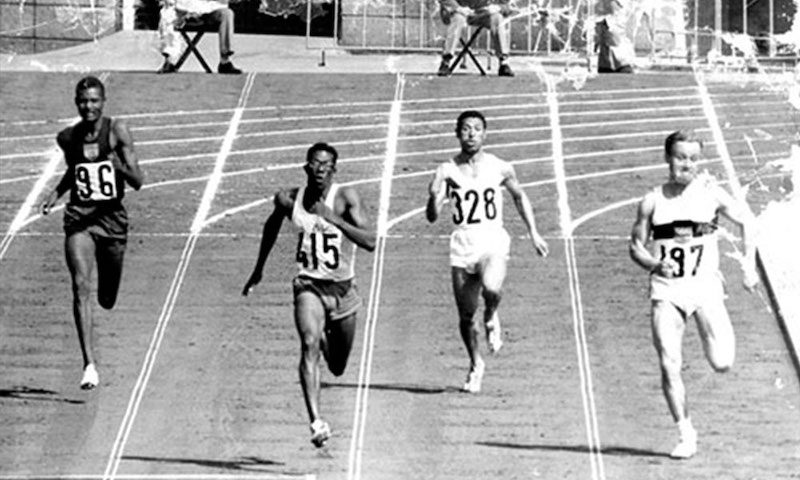
He can laugh about it now but what happened on the eve of his heats was not the ideal preparation: “Our taxi got lost going to the ambassador’s residence and we were out late and ate a big meal.” As he was a pilot in the Malaysian Air Force, his athletics career was cut short by the Konfrontasi.
As for “Flying Doctor” Jegathesan, the Olympics were akin to a near-religious experience. He says: “For a 16-year-old schoolboy, the sheer scale of everything in Rome blew my mind. The stadium, the organisation, the crowds; having world champions walk past you wearing rubber shoes and a T-shirt … it was a real eye-opener.
“It was hugely positive,” he continues, “and the first of 11 Olympics I’ve been to.” Three as an athlete, one as chef de mission, and the rest as a medical doctor for the Malaysian team or medical adviser to the International Olympic Committee (IOC).
At his peak in Tokyo in 1964, he came down with chicken pox just after running his first heat. After winning a hat-trick of gold medals in the Asian Games, Jegathesan would reach the semifinals in Mexico in 1968, with many of his national records lasting the best part of 50 years. He ran against the great Tommie Smith and witnessed the infamous Black Power Salute. But he got an idea of Malaysia’s standing in the world when Smith asked him where he was from. “When I told him, he said: ‘Malaaaysia? Where’s that?’”
In 1972, badminton at least made it as a demonstration sport and the men’s doubles pair of Ng Boon Bee and Punch Gunalan won a silver. But the 1970s and 1980s were a barren period for Malaysian Olympic hopes, crashing completely with the Moscow boycott after both the hockey and football teams had qualified.
When Jeffrey Ong won gold at the age of 14 in both the 400m and 1500m freestyle at the 1987 SEA Games in Jakarta, we wondered how far he could go. He duly became Malaysia’s greatest swimmer, being the first to win a silver at the Asian Games, among a myriad of medals. But at the Olympics, he found the going tougher: In 1988, the tall Penangite placed 29th in the 400m and 36th in the 1500m; in 1992, he was 20th and 37th. When asked, more than three decades later, if he thought the quest for gold had become a self-defeating obsession, Ong says: “As a Malaysian going to the Olympics back then, we felt medals were for the ‘super humans’ of the big nations. But when Anthony Nesty from Surinam beat America’s great Matt Biondi in the 100m butterfly in 1988, we knew that smaller countries could get there.
“But Malaysia was in its infancy in sports development and the Olympics are a completely different ball game from the SEA, Asian or Commonwealth Games. I feel that ever since we won that Olympic medal in 1992, it encouraged others and inspired younger generations. The team was elated but because of our history in badminton, that was a bit more a case of ‘when, not if’.”
Warming to the theme, he continues: “It was the same with Nicol David when we thought, ‘Wow, we’ve got a world champion from Malaysia’ and she did it eight times. Success breeds success in my book so when we see other Malaysians doing well, it helps enormously.”
2014-09-23t120000z_70066556_gm1ea9n16ek01_rtrmadp_3_games-asian.jpg
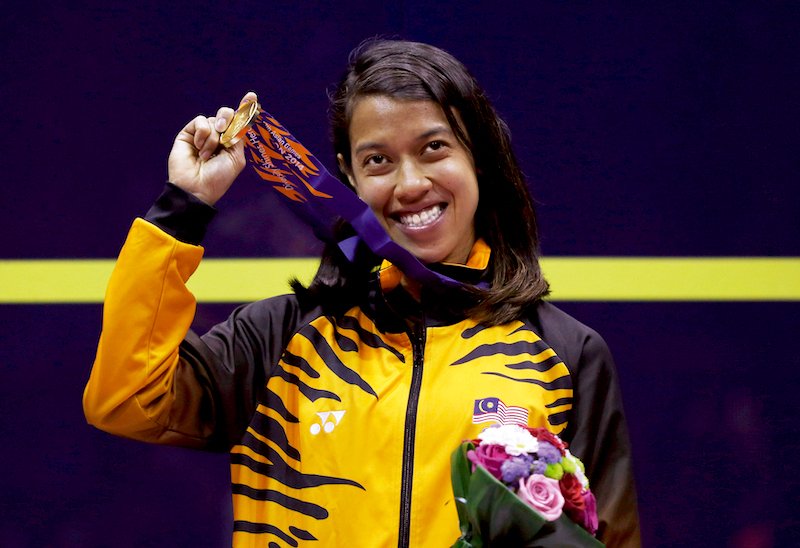
But as with badminton, squash was not in the Olympics despite our best efforts to get it there, and one can only speculate what might have been. Just like the badminton kings of the 1950s, Nicol was denied a tilt at Olympic glory and Malaysia never had the chance to either celebrate or milk it. Like the shuttlers, her reign in squash spanned at least two Games, possibly three.
As it is, she has inspired many without it, but as Ong maintains: “The Olympics has a different ring to it, a different connotation. Some people are multiple world champions and would trade more than one of those medals for an Olympic medal any day.” Nicol is on the record as being one of them.
Even after the breakthrough in Barcelona, the floodgates didn’t open, but in Atlanta at least Cheah Soon Kit and Yap Kim Hock achieved an upgrade with their silver in the men’s doubles while Rashid Sidek added a bronze in the singles. Sydney and Athens drew blanks but since then, the medals have been more regular — both from badminton as well as unlikely sources. Lee Chong Wei began his silver trilogy in Beijing, added to it in London and completed the hat-trick in Rio. So long, so near, yet so far.
Sarawakian Pandelela Rinong added a surprise bronze in the women’s 10m diving in London and also managed an upgrade to silver in Rio with Cheong Jun Hung in the synchronised event. But they couldn’t follow it in Tokyo and haven’t qualified for Paris.
2023-10-03t131200z_2143757692_up1eja310nybi_rtrmadp_3_games-asia.jpg
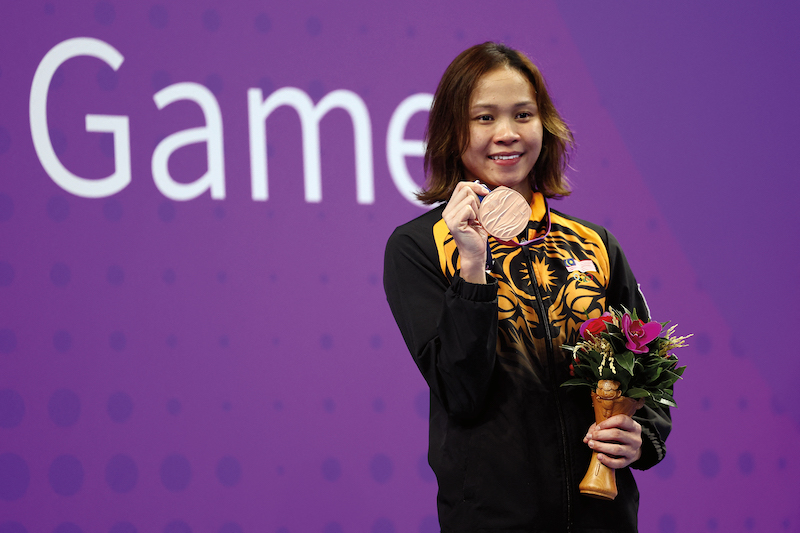
Two more silvers came in Rio — in the mixed doubles from Chan Peng Soon and Goh Liu Ying and in the men’s doubles from Goh V Shem and Tan Wee Kiong. With a bronze from Azizulhasni Awang in the keirin cycling event, Rio provided the best-ever haul of five medals. In Tokyo, Azizul improved from bronze to silver, but there was only one more medal — another bronze in the badminton men’s doubles, this time from Aaron Chia and Soh Wooi Yik.
All in all, Malaysia has been unlucky with its timing — two golden eras that never were, and Chong Wei’s epic semi-final win over Lin Dan in Rio being the cruellest of false dawns. The effort to beat his nemesis was such that he had nothing left for the final.
It was yet another way the yellow precious metal eluded our grasp.
This article first appeared on Jul 22, 2024 in The Edge Malaysia.


